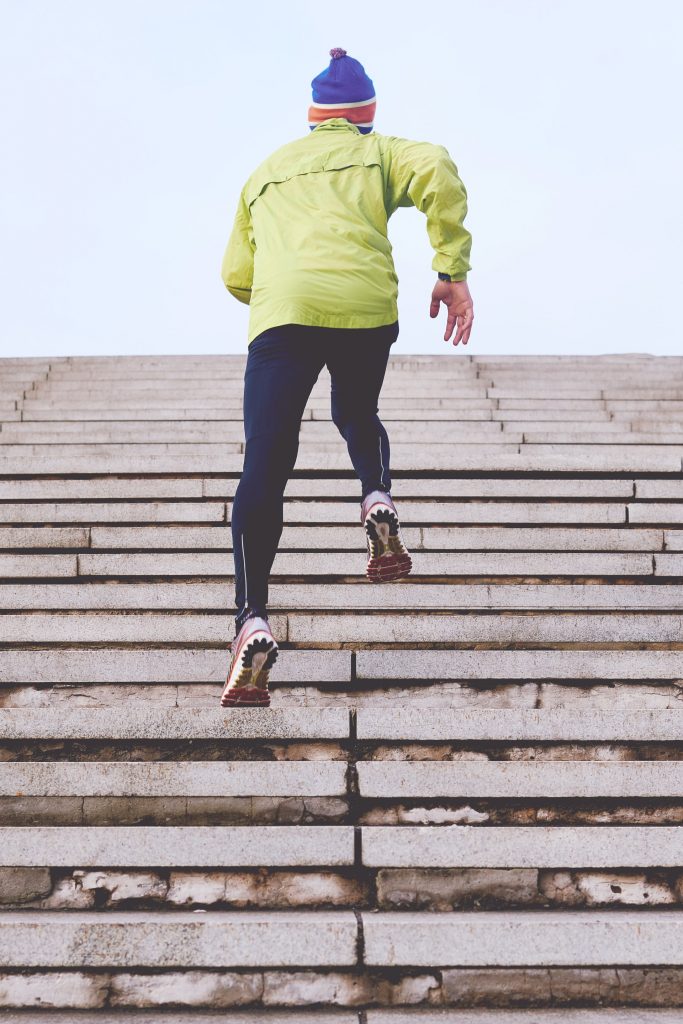The restrictions imposed to ‘Flatten the Curve’ of the Covid-19 Pandemic have halted all collective sporting activity. So, one might imagine that, sports injuries have disappeared too. Traumatic injuries, due to collisions between players have reduced but other injuries have come into view.
Those of us out of work, or working from home and therefore not commuting, have more time to exercise. That’s a good thing, isn’t it? Not necessarily. Sore knee joints, Achilles tendon injuries, tight hamstrings, niggles of old injuries… all during the last few weeks of lockdown.
Sports injuries in lockdown
Women and men participating at all levels of sport are finding that life without organised training doesn’t necessarily mean fewer aches and pains. Usually, they would go to work, train with their GAA club or soccer club twice a week, perhaps go to the gym, and play a match at the weekend. These players are finding that their exercise regimes are totally different now. The runners who usually struggle to get out 3 times a week are now ‘free’ to run daily. Take the gym and club training out of the routine and people are left with exercising at home or within 2 km.
Lots of people are exercising a lot more now than they are used to. There is a lot more running being done than before. The lack of organized training for many means that they may not have done a warm or a cool down or a stretch since the organized sessions finished.
Reduce your risk of getting injured
There are a number of ways to lower your risk of sports injury during the lockdown. Firstly, keep track of what you are doing these days. You can compare it to what your exercise routine used to look like before the restrictions were imposed. There needs to be a gradual change in your training frequency (how many times per week), duration (for how long) and intensity (how hard are you working).
Your body needs time to adjust to a new exercise so that the muscles, tendons and bones can change their structure to cope with the new demands. In running terms, there is a traditional 10% rule, which suggests that you should not increase your mileage by more than 10% per week. For novice runners, this might be a bit restrictive but 2 days off at least per week are very important to allow the body to adjust.
Make the best of your warm up
Warm-up before and cool- down after exercise to help with your flexibility and mobility and prevent sports injuries in lockdown. The GAA-15 warm up is a 15 minute warm up that is designed to prepare you for hurling and football training. Do it these days before your run. If you haven’t done it before now is an ideal time to implement it.
ActivateGAA is another excellent short agility and strength programme designed to be used as a warm up and improve performance in GAA. If you are usually a team sports player and you have taken up running in this crisis period, these programmes are crucial to maintain your sports specific strength and mobility, reducing your risk of injury on your return to team training.
Athletics Ireland have some excellent videos on their Youtube channel for sprinters, throwers and jumpers. These videos are relevant for anyone who plays team sports too. As always, start easy and build up slowly.
Rehabilitation of old sports injuries
Finally, it’s a great opportunity for those of you dealing with niggling/ old sports injuries to work on your strength to ensure you are better after the restrictions are eased. Exercises that you have been prescribed in the past for your dodgy knee/ ankle/ shoulder need to be recommenced. If you start now, you may well have 12 weeks of rehabilitation done by the time you get back to playing with your club. Contact us for an online consultation if you need advice on an old injury or a new one.
In summary, with your changed exercise routine, change your dose of exercise gradually, do a warm- up and cool –down, sleep and eat well and do your exercises for your weak areas. Have fun!
Below see some links to the excellent resources online to keep you healthy.




